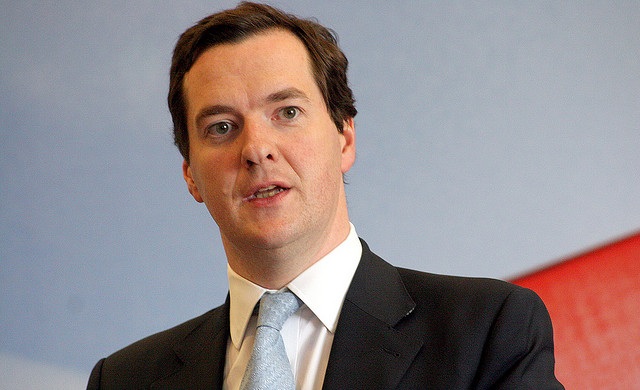Chancellor George Osborne introduced his Banking Reform Bill to Parliament today, but not before giving the public a good look at it in a speech this morning at JP Morgan in Bournemouth.

In this writers opinion, the changes put forth can come none too soon. We often refer to the 2007 banking crisis. It’s been so bad that “The UK Banks” should be considered as the title for a new daytime soap opera. Just when you think that you know what’s going on, another scandal erupts.
We’ve heard all kinds of promises of change from the sector, but the public is not stupid. Bankers – as much as other businesses – have learned the right words and phrases that can be employed to get all but the angriest citizens to calm down. I have believed all along that no real changes are going to be forthcoming until someone begins to hold everyone in the sector accountable.
Mr. Osborne put the proposed changes in simple, understandable, and proper terms. “Our principles are simple. If you do the right thing, the government should support and help you, and remove barriers in your way. If you do the wrong thing, you should take responsibility for your actions.”
It would appear that Osborne has recognized the real root of the problem. “Sadly, nowhere have these simple principles been broken more clearly and indefensibly that in our banking system over the last decade. Irresponsible behavior was rewarded, failure was bailed out, and the innocent – people who have nothing whatsoever to do with the banks suffered. Those who (were) out for themselves (got) away with it, and those who work(ed) hard and play(ed) by the rules (got) punished.”
Osborne is proposing four major areas of change are intended to change the banking system and convert consumer anger back to consumer confidence. Here are those four concepts:
- Empowering the new Financial Conduct Authority to really have “authority” to ensure that banks and bankers are held to accountable.
- Establishing a new law to ring-fence divisions of the banks, so that the failure of one division does not cause the failure of the whole.
- Reconstruct the entire banking culture, built on a standard of ethical conduct that replaces the schemes of creating more money for the banks with a primacy of doing what it best for the customers.
- Enable customers with a new freedom of choice about where to bank and when to change banks.
Osborn did not stop with placing fault at the feet of the banks themselves, but called the easing of restrictions by the previous government “one of the worst economy policy mistakes of the modern era,” leaving no one to monitor the signs of evolving problems in the system. As a result, ten per cent of the wealth of the UK is gone, hundreds of thousands of people lost their jobs, and the entire economy was sacrificed to put out the spreading wildfire.
He promised that the FCA will have the teeth and the tenacity to “call time out” if the banking “party gets out of control,” as a part of the “most open and transparently policed markets in the world.”
Noting that 75% of all personal accounts are held by four banks, Osborne invited the founding of new banks that would challenge the stodgy, establishment by offering attractive and competitive services.
Osborne’s speech may be the most inspiring and challenging speech delivered in the UK since Churchill’s, “Blood, sweat and tears.” Let us hope that it is more than just empty words. And let us hope that the changes will become reality in short order. We have needed someone with authority to stand up, call for real change, and work to make it happen. It appears that the Chancellor may be our knight in shining armor.


 Hot Features
Hot Features













